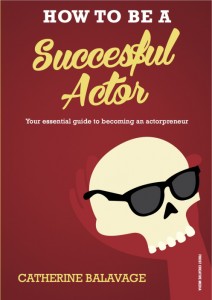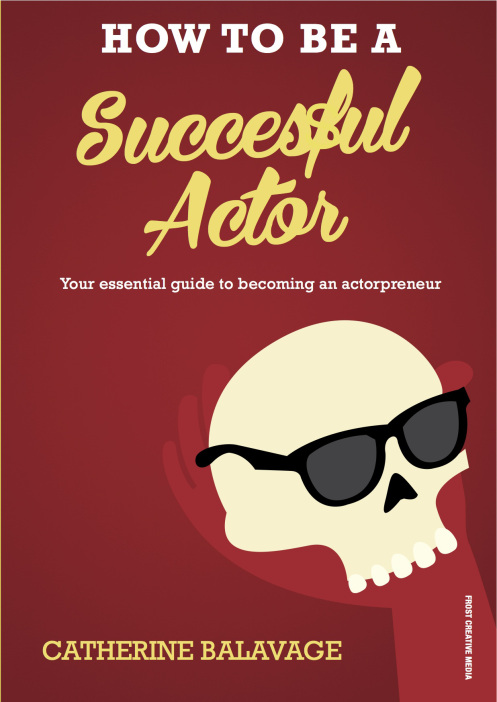 The rumour that acting is the hardest and most brutal industry in the world is unfortunately true, I have been an actor now for over 10 years. Yikes. Along the way I have realised that the only way to have a brilliant career is to write and produce your own stuff. Which is what I did with Prose & Cons. It is currently being edited.
The rumour that acting is the hardest and most brutal industry in the world is unfortunately true, I have been an actor now for over 10 years. Yikes. Along the way I have realised that the only way to have a brilliant career is to write and produce your own stuff. Which is what I did with Prose & Cons. It is currently being edited.
If you want to be inspired, here is our list of the Top Actors Who Make Their Own Work.
Brit Marling
This American producer, director, writer and actress caused a stir with Another Earth. She was only 27 at the time. Now 30 and with 13 films under her belt. She was even on the front cover of Vanity Fair’s prestigious Hollywood edition. She has written four films and directed one.
Check out these personal quotes from her IMDB page:
“I always started writing in order to act. I don’t know that I could have the discipline to sit down and write if I was going to give it away. That would be too hard. But I love to act in stories that are outside my imagination because I can only conceive of so many things from my point of view. The thing that’s intoxicating about being an actor is that you get to live in someone else’s world for a while and I hope to do more of that. But I think I’ll never stop writing now because I’m wondering why there aren’t more representatives of women that are like the women we know. Where’s the film with the women who are complicated and strong and beautiful and sexy and interesting and of all body types? You don’t get to see enough of them. So there’s something important in attempting to write them for myself and for the insanely talented women out there.”
“[on why she decided to become a screenwriter in relation to her being an actress] How terrifying to surrender your life to being chosen all the time. Having to be chosen and re-chosen. Writing so that I can act became a way of having not more control over my future but not having to wait for permission. You can choose yourself. Hmm, who should play this part? I nominate me!”
Mindy Kaling
Started out as a writer for The Office and even wrote a character for herself into the show. At the age of 34 Kaling has created her own show, The Mindy Project, and was named as one of Time Magazine’s 100 Most Influential People in the World in 2013.
Mindy knows she is different and makes fun of it: “I’m a minority chubby woman who has my own show on a network. I don’t know how long this is going to last!” She told Jon Stewart. She has 2.3million Twitter followers and refuses to diet.
Kaling wrote in her bestselling memoir Is Everybody Hanging Out Without Me?: “I fall into that nebulous, quote-unquote, normal American woman size that legions of fashion stylists detest. For the record, I’m a size 8 — this week, anyway. Many stylists hate that size because I think to them, it shows that I lack the discipline to be an ascetic; or the confident, sassy abandon to be a total fatty hedonist.”
Emma Thompson
She wanted better roles so she wrote the screenplay for Sense and Sensibility, an adaptation of Jane Austen’s novel. The film got Thompson the Oscar for Best Adapted Screenplay and a nomination for leading actress. She hasn’t looked back since. The 54-year-old has 60 films as an actor under her belt and another 12 as a writer.
Nia Vardalos
She kept losing out on roles so she wrote My Big Fat Greek Wedding. The film was a roaring success. Vardalos says: ‘I run into other actresses and we talk about the lack of parts for woman. At least I can write myself a part, which is an amazing skill to possess.”
Barbra Streisand
Streisand was the first woman to win a Golden Globe for directing after co-writing, directing and starring in Yentl. She was 41 and had already broken down a lot of barriers for woman. She started off as a nightclub singer and is now one of the most famous actress, singer, producer, director, actor and writers. Has never been afraid to send herself up. She has inspired generations of woman.
In her own words: “I arrived in Hollywood without having my nose fixed, my teeth capped, or my name changed. That is very gratifying to me.”
“To have ego means to believe in your own strength. And to also be open to other people’s views. It is to be open, not closed. So, yes, my ego is big, but it’s also very small in some areas. My ego is responsible for my doing what I do – bad or good.”
Lake Bell
The 34-year-old is making waves with her film, In A World. She has 35 credits to her name but made her own film this year. After being an actor for 11 years she sat down to write a script and won the prestigious Waldo Salt Screenwriting Award at the Sundance Film Festival. She told Glamour Magazine: “When I first started auditioning in LA, I realised it was a clique; this guy’s got the monopoly on epics, this woman’s got the monopoly on tampon adverts. It was the perfect environment for a modern comedy.” “I wanted to make a movie’, she went on, “so I wrote a part for myself.”
“Being willing to outsource all of your creative decisions, especially to a first-timer like me, is very ballsy. I had no other choice than to make it the way I made it. And I felt very supported in that. When you write and direct your own film you basically know exactly what you want. Or you hope to. For the studio, it actually can make life a little easier, because if you have a bunch of questions they only need to call one person.”
Kristen Wiig
While Kristen had been in many films and was a regular on Saturday Night Live, she never really broke out until Bridesmaids. Kristen co-wrote and starred in Bridesmaids which was one of the biggest hits of 2011, taking $300 million at the box office and was credited for turning the tide for women in film. She has an amazing 60 credits to her name and we get the feeling the that she is just getting started.
In her own words: “If you’re creating anything at all, it’s really dangerous to care about what people think”. She also states that woman are asked their age more than men.
Ben Affleck and Matt Damon
They wrote Good Will Hunting and won an Oscar. They rest is movie star history.
Vin Diesel.
He couldn’t get the roles he wanted so he wrote a short film called Multi-Facials about being bi-racial. Steven Spielberg saw it and cast him in Saving Private Ryan. He is now a movie star and has a few franchises under his belt.
Lena Dunham
She made her first film in her parents New York apartment with a Canon 7D. Tiny Furniture was critically acclaimed and lead to the huge hit and cultural game-shifter, Girls. Still only 27-years-old but was 23 when she wrote, directed and starred in Tiny Furniture.
In her own words: “I was constantly preparing for auditions in a way that was crazy… and then I’d literally get cast as, like, a bouncing ball or a fat man or a security guard.”
Tina Fey
Made her name in Saturday Night Live and also is the creator, producer, star and writer of 30 Rock. She wrote a book called Bossy Pants and had two children. She returned to work not long after giving birth saying, “NBC has me under contract; the baby and I only have a verbal agreement’. Is their no end to her talents?
Greta Gerwig
Became known thanks to her association with the mumblecore film movement. The 30-year-old is the indie IT queen of the moment. Was brilliant in Lola Versus and stars in film-of-the-moment, Frances Ha, which she co-wrote with director boyfriend Noah Baumbach. Plays strong female characters.
What do you think?
Check out my new book, How To Be a Successful Actor: Becoming an Actorpreneur, out now. It tells you all about how to become a successful actor.
 I know what you are thinking: what? That makes no sense. But bear with me. I have been acting for a long time. Since I was a teenager and in that time I have had some amazing parts, met amazing people and worked on projects that I was proud of. Also in that time I worked with a lot of jerks, had some terrible auditions, worked on awful projects and had some really awful experiences. My hair was always in a state of recovery because some over-zealous make up person had gone to town on it, my breasts were always being taped down by gaffer tape because costume people ‘didn’t know what to do with them’ and I was working too damn hard in an industry where the pay had not only not risen, but was actually the lowest in fourteen years. I kept almost getting the life-changing parts but lost out at the final hurdle. To put it frankly, I had had enough.
I know what you are thinking: what? That makes no sense. But bear with me. I have been acting for a long time. Since I was a teenager and in that time I have had some amazing parts, met amazing people and worked on projects that I was proud of. Also in that time I worked with a lot of jerks, had some terrible auditions, worked on awful projects and had some really awful experiences. My hair was always in a state of recovery because some over-zealous make up person had gone to town on it, my breasts were always being taped down by gaffer tape because costume people ‘didn’t know what to do with them’ and I was working too damn hard in an industry where the pay had not only not risen, but was actually the lowest in fourteen years. I kept almost getting the life-changing parts but lost out at the final hurdle. To put it frankly, I had had enough.



